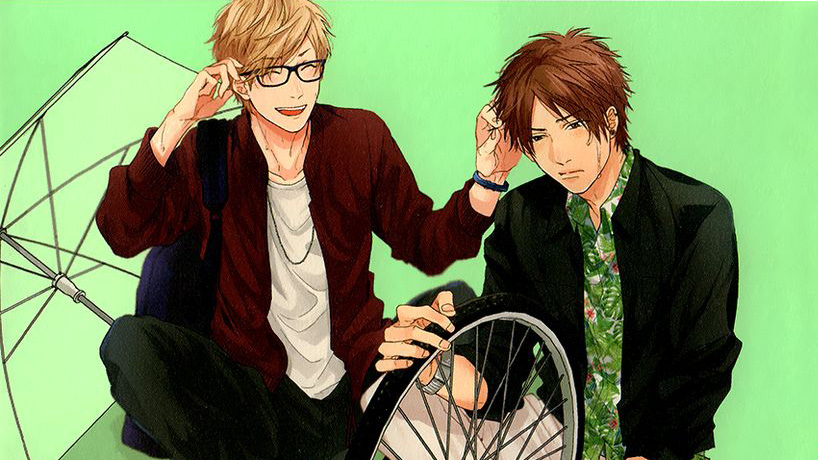This review explores Escape Journey by Ogeretsu Tanaka, highlighting its heartfelt exploration of queer love, emotional struggles, and the bittersweet realities of coming of age. Through my personal reading experience on ComicK, I’ll share what worked beautifully, what felt flawed, and why this series still leaves a lasting impression.
My First Impressions of Escape Journey
When I first opened Escape Journey on ComicK, I wasn’t expecting it to hit me this hard. At its core, this is a story about two men, Naoto and Taichi, who are trying to figure out how love fits into their messy, very real adult lives. The narrative doesn’t sugarcoat their relationship it shows the friction, the insecurities, and the ugly misunderstandings that happen even when love is genuine.
What struck me right away was how natural their chemistry feels. It doesn’t read like a fairytale romance, but more like two flawed people trying to hold on to something precious. That, for me, is where the beauty of this manga lies it mirrors the real anxieties of young adulthood, not just the idealized version.

At the same time, I could feel Tanaka’s boldness in pushing boundaries. Some moments are intimate, even raw, and the way those panels are drawn makes you pause, not just for the sensuality but for the vulnerability behind them.
Love and Growth Between Naoto and Taichi
The highlight of this installment is how much Naoto and Taichi have grown since the first book. Taichi, once impulsive and hot-tempered, now comes across as more thoughtful, though his temper still lingers beneath the surface. Naoto, meanwhile, is torn between love and the expectations of his family a conflict that feels painfully familiar to anyone caught between tradition and personal truth.
Their love is far from easy. The manga constantly reminds us that affection alone doesn’t erase insecurity, fear of rejection, or societal judgment. And yet, what makes me root for them is the way they keep choosing each other despite all the chaos around them. That persistence feels like the realest kind of love.
Still, I sometimes wished the pacing slowed down. The time skip left me craving more of their college years, more glimpses into how they actually grew into the couple we now see. The jump felt like skipping chapters in someone’s diary.
The Conflict That Keeps You Turning Pages
Drama is the lifeblood of this series, and the second volume doesn’t disappoint. Nishina, the so-called “other guy,” adds tension without falling into easy villain tropes. His blackmailing scheme felt frustrating, but his complexity made me empathize with him more than I expected. I like when a story doesn’t paint its characters in black and white it makes me wrestle with my own judgments.
Yet, there were moments where the melodrama felt a little forced. The secrets, the miscommunication, the push-and-pull they all make sense narratively, but I couldn’t help but think, “Guys, just talk it out already!” Still, that frustration might be exactly what Tanaka wanted us to feel the helplessness of watching people we care about make flawed choices.
This emotional rollercoaster kept me glued to ComicK late at night, clicking through chapters when I should have been asleep. That, to me, says the drama worked.
Real-World Struggles Reflected in Fiction
One of the things I admire about Escape Journey is how unflinchingly it addresses societal pressures. Taichi’s decision to come out to his mother and her heartbreaking response—“Is it my fault?” felt like a gut punch. It reminded me of how complicated family ties can be when identity clashes with tradition.
The manga doesn’t just stop at family acceptance. It slips in subtle but sharp reminders of discrimination like housing bias based on sexuality that remind us love stories aren’t lived in a vacuum. These details ground the narrative, making it more than just romance; it’s social commentary in disguise.
Reading this on ComicK, I found myself pausing at certain panels, reflecting on how often stories like this remain untold in mainstream media. It’s refreshing and painful at the same time.

The Visual Storytelling: More Than Just Pretty Panels
Ogeretsu Tanaka’s art deserves its own spotlight. The illustrations are expressive, sometimes hauntingly so. A single look from Naoto can tell you more than a page of dialogue. The use of close-ups during intimate moments doesn’t just capture desire it captures doubt, hesitation, and longing.
That said, I couldn’t ignore how some scenes showed Naoto in ways that felt uncomfortably one-sided, almost as if his pleasure was sidelined. It’s a detail that left me questioning whether the emotional balance of their relationship was fully explored in the art as much as in the dialogue.
On the flip side, I adored the recurring bike motif. It’s a subtle but powerful metaphor the bike connecting them, carrying them forward, but also representing the need to keep pedaling if they want to stay balanced. That image lingered with me long after I closed the final chapter.
Strengths, Flaws, and Final Thoughts
If I had to sum it up, Escape Journey is a messy, beautiful, frustrating, and deeply human story. It doesn’t give easy answers, nor does it try to. That’s both its strength and its weakness. Readers who want a clean, feel-good romance might be turned off by the angst, but for me, that’s what made it resonate.
Yes, I wish we got more of their journey instead of being dropped into the later years. Yes, some of the drama could have been dialed down. But overall, I’m glad I experienced it. Reading on ComicK made the ride even smoother the platform is fast, free, and made it easy to dive into every page without distractions.
At the end of the day, this isn’t just about whether Naoto and Taichi can survive their trials it’s about whether we, as readers, are willing to face the uncomfortable truths alongside them. And for me, that answer is a definite yes.
Read more:
- Nettaigyo wa Yuki ni Kogareru Review: A Tender School Love Story
- Dungeon Meshi Review: Gourmet Adventures Underground
